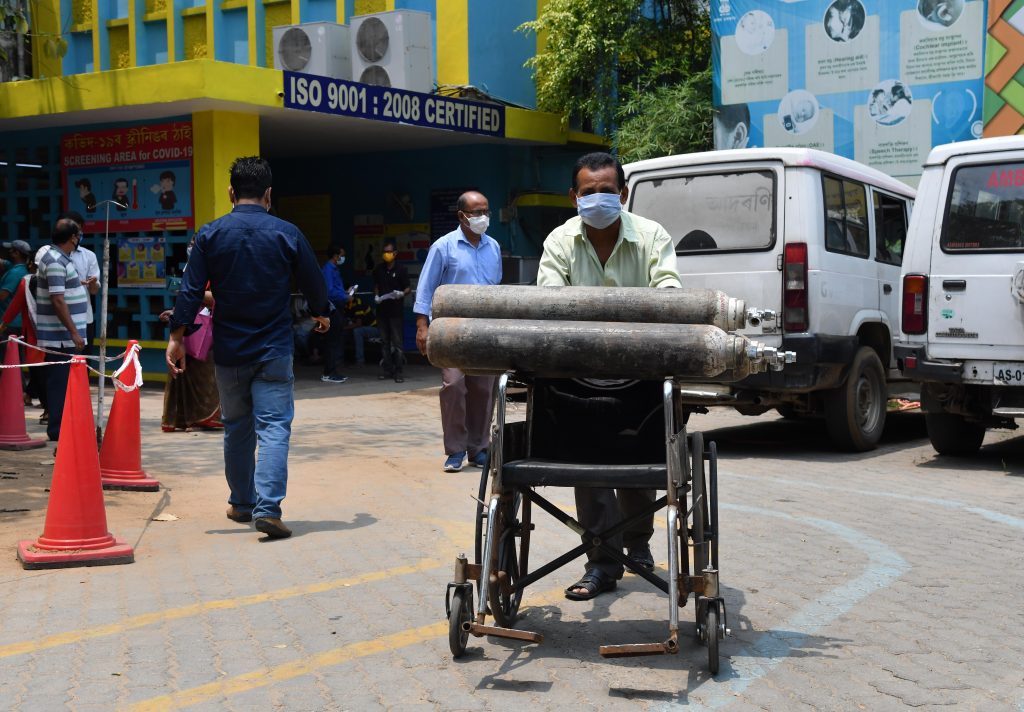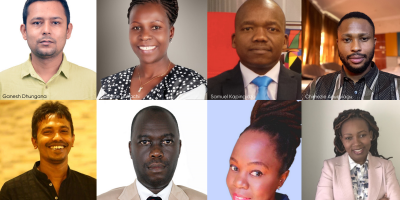In the unfolding disaster, which recently passed 20 million reported Covid-19 cases, human rights, basic services and life-saving supplies must be prioritised for India’s poorest and most marginalised who are experiencing a Covid ‘stress multiplier’. The warning from researchers is based on evidence from the first Covid wave in 2020 which identified the compounding impact the pandemic has on existing vulnerabilities for the most marginalised groups because of inadequate access to basic essentials – from food to water and sanitation, employment and health.
Academics from the Social Science in Humanitarian Action Platform (SSHAP) reviewed the affects of first Covid wave in India and revealed the different impacts that the pandemic had according to class, caste, gender, race, religion and ethnic lines. According to evidence, the first wave was most acute for precarious, marginalised, and minority groups, such as Dalits and informal workers who bore the crushing burden of the stringent lockdown – wiping out their livelihoods and exacerbating social and economic vulnerabilities. In addition, Muslim minorities were wrongly scapegoated for the spread of the virus.
Although the current outbreak appears far more pervasive with high Covid-19 infection and mortality rates across the population, including the middle-class and elites, researchers warn that so far, reporting has centred on India’s cities and the full scale of the impact on rural areas is so far unknown. These are areas of greater deprivation where health infrastructure and service provision are weaker, which means low testing and low reporting, but also indicates the consequences for poorer rural populations could be even more severe.
Immediate and longer-term action needed
Evidence suggests what is needed for both short- and longer-term recovery. Short-term the Indian government must take immediate action to break the transmission cycle and prevent more avoidable deaths. But it must also avoid the mistakes made during lockdown in 2020 and ensure delivery of basic needs for poorer people and informal workers. Also needed is greater transparency regarding infection and testing data, working closer with the scientific community, and delivery of a universal vaccine roll-out.
Longer-term, more robust processes are needed to deliver effective responses and build preparedness to compounded uncertainties. And for recovery to be effective and sustainable the researchers are calling for greater accountability from the Indian government to protect citizens’ basic rights to life and health, including medicines and vaccines.
Millions could fall into extreme poverty
Professor Lyla Mehta, Professorial Fellow at Institute of Development Studies and co-author of the SSHAP briefing, said: “The Covid-19 crisis in India is causing widespread devastation throughout the population, with a lack of oxygen leaving people literally grasping for breath and private and public health systems being overwhelmed. The biggest challenge for the future will be preventing millions of people from falling into extreme poverty.
“In India’s first Covid-19 wave we saw how the pandemic was politicised to target minority groups, suppress dissent and undermine constitutional values. It’s essential that discriminatory practises are halted, and that basic provisions, medicines and vaccines are made freely available to all. The Central government also needs to recognise its failures in enabling the second wave, such as not heeding scientific warnings and allowing large election rallies and religious festivals to go ahead and begin to act in a responsible and accountable manner.”
Dr Shilpi Srivastava, Research Fellow at the Institute of Development Studies and co-author of the SSHAP briefing, said: “The scale of lives and livelihoods lost now in India is overwhelming. For the most marginalised groups we know that the pandemic exacerbates existing inequalities and vulnerabilities and without support their futures will be in peril. They must be placed at the centre of future recovery plans and their voices, experiences and needs put at the forefront of policymaking and preparedness plans.”
Our research outlines additional priorities for immediate action to aid India’s longer-term recovery planning, including:
- Implementing universal social protection, free from identity and residency requirements, and learning from failures of government relief and social safety nets during the first wave.
- Investing in basic services to ensure that states and districts within India (often the size of European countries) have the resources to develop flexible, inclusive and decentralised systems for distributing food and essential services.
- Investing in the public health system so that states and districts to have effective systems for testing, tracing, isolation, and treatment.
- Including the voices and experiences of marginalised groups to shape government preparedness and recovery strategies, with a stronger role for civil society organisations, local community groups and social movements.
- Recognising the rights of critics, activists and journalists to dissent and their role in holding the government to account, and not using Covid-19 as a reason to undermine constitutional values.
- Have more transparent and accountable governance systems and be more open to engaging with civil society groups, humanitarian and development organisations to better coordinate responses to future outbreaks and pandemics.
These findings are drawn from our briefing COVID-19, Uncertainty, Vulnerability and Recovery in India, which is also available in Gujarati and Hindu was based on a literature review, and interviews in 2020 with experts and practitioners from 12 states in India, including representation from domestic and international NGOs, and local civil society organisations.




